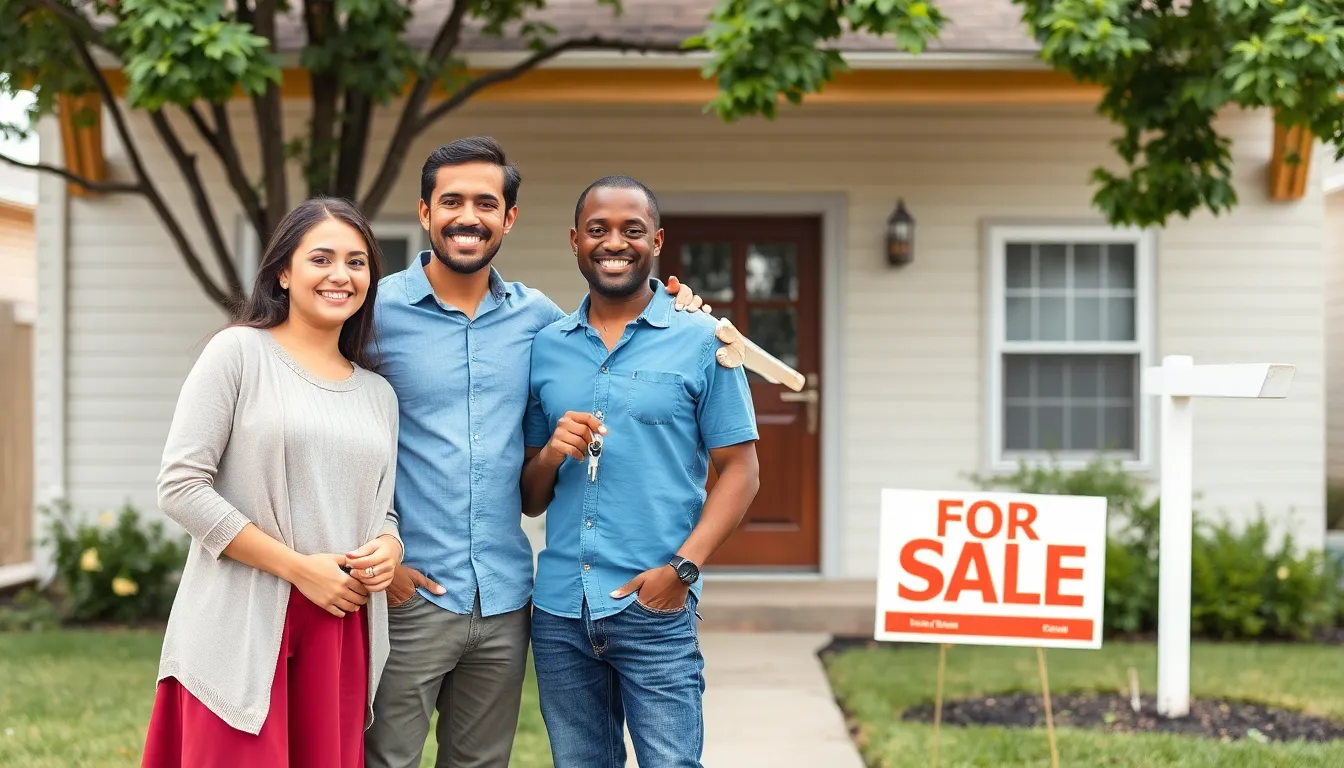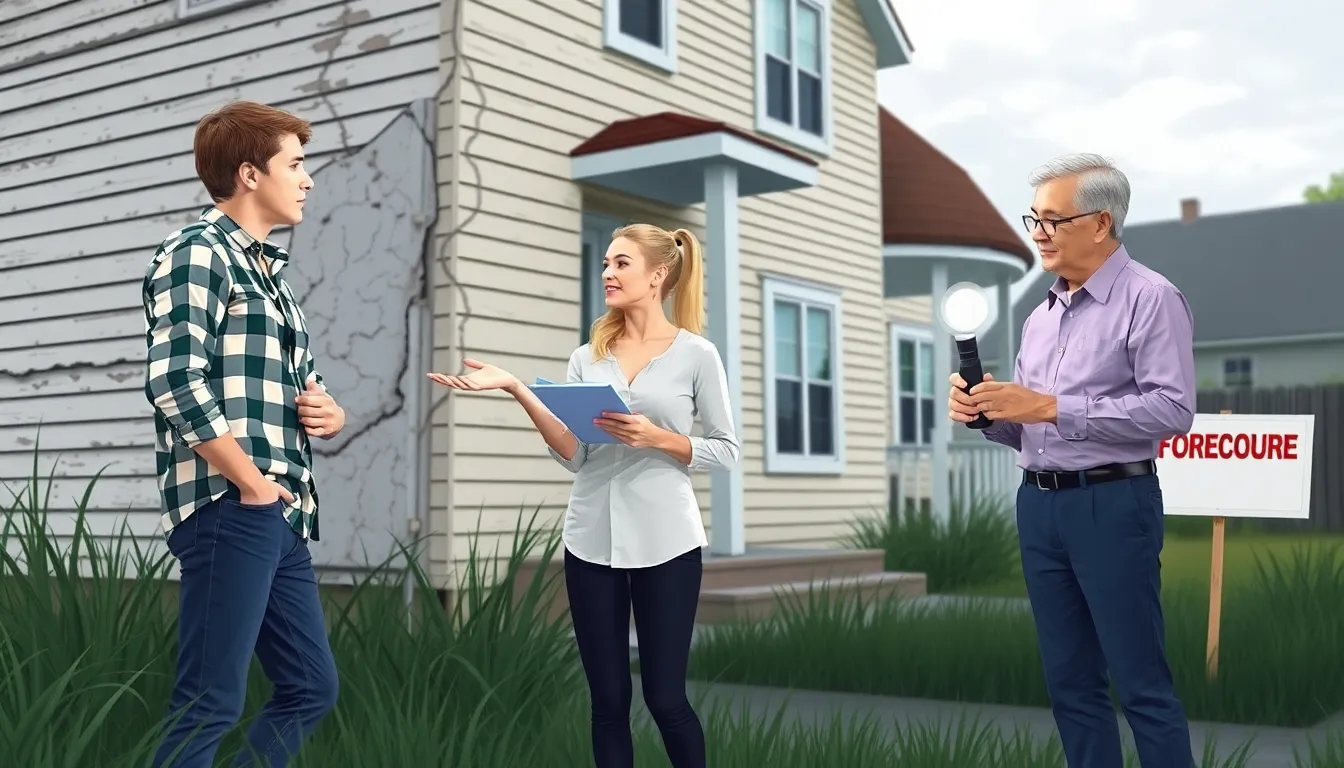Table of Contents
ToggleIn the wild world of real estate, buying a foreclosed home might seem like the ultimate treasure hunt. Imagine snagging a diamond in the rough at a bargain price—who wouldn’t want that? But before diving headfirst into this enticing adventure, it’s crucial to weigh the pros and cons. After all, that “dream home” could also turn into a money pit faster than you can say “renovation nightmare.”
While foreclosures can offer fantastic deals, they often come with hidden surprises that can make even the bravest homebuyer quiver. From structural issues to mysterious mold colonies, the thrill of the chase can quickly turn into a comical horror story. So, is buying a foreclosed home a smart move, or just a gamble with your hard-earned cash? Let’s explore the ins and outs to help make that decision a little less daunting and a lot more fun.
Understanding Foreclosures
Buying foreclosed homes offers potential benefits and challenges. Gaining insight into foreclosures helps prospective buyers navigate this complex market.
What Is a Foreclosed Home?
A foreclosed home refers to a property repossessed by a lender after the homeowner fails to meet mortgage payments. Lenders typically initiate the foreclosure process to recover financial losses. Properties can enter this phase due to missed payments or homeowner bankruptcy. In many cases, listings appear at a lower market value, attracting buyers. While opportunities exist, buyers should prepare for additional costs and property issues.
Types of Foreclosures
Several types of foreclosures exist, each with distinct processes. Judicial foreclosures involve court proceedings following state-specific laws. Non-judicial foreclosures occur outside of court, typically in states where lenders handle the process directly. Short sales involve the lender’s agreement to sell the home for less than the owed mortgage balance, avoiding foreclosure. Understanding these types helps in finding suitable investments and effectively navigating the buying process.
Pros of Buying a Foreclosed Home

Purchasing a foreclosed home comes with notable advantages that can appeal to various buyers. Understanding these benefits can assist in making informed decisions.
Potential Cost Savings
Cost savings represent a significant advantage of buying foreclosed properties. Buyers often find these homes priced below market value, resulting in considerable discounts. Depending on the location, some listings may achieve price reductions of 20% to 50%. Buyers can take advantage of lower purchase prices and allocate saved funds to renovations. Furthermore, some lenders offer attractive financing options for foreclosed homes, enhancing affordability. Buyers should conduct thorough market research to ensure they capitalize on the best deals available.
Opportunity for Investment
Buying a foreclosed home creates excellent investment opportunities. Investors often target these properties for their potential to appreciate over time. With strategic renovations, buyers can enhance property value significantly. Over the long term, these investments may yield substantial returns when properties are sold at market rates. Additionally, renting out renovated foreclosures can provide consistent rental income, appealing to those seeking passive income streams. Evaluating local real estate trends enables buyers to identify areas with the highest growth potential.
Cons of Buying a Foreclosed Home
Buying a foreclosed home comes with several challenges and potential drawbacks. Understanding these cons helps buyers make informed decisions.
Hidden Costs
Hidden costs often surprise buyers of foreclosed homes. Repair expenses frequently arise, including plumbing, electrical, and structural issues. Buyers might not initially see these problems during the property inspection, leading to unexpected financial strain. Taxes and fees often add to the expense, as buyers must account for delinquent taxes or homeowners association dues. Financing foreclosures can also incur additional costs, such as higher interest rates or insurance premiums. Each of these costs can significantly impact the overall budget, making thorough financial planning essential.
Risks of Property Condition
Property condition poses a significant risk when buying foreclosures. Many of these properties experience neglect and may suffer from severe damage. Mold growth, broken appliances, and inadequate wiring can create unsafe living conditions. Buyers often overlook these risks due to the attractive pricing of foreclosures. Some properties may not meet local building codes or safety standards. Engaging a professional inspector reduces the chance of overlooking critical issues, as they can identify potential problems before purchase. Understanding the property’s true condition helps set realistic expectations and prepare for necessary repairs.
Factors to Consider Before Buying
Buying a foreclosed home involves several considerations. Understanding local market conditions and financing options can greatly influence a buyer’s decision.
Local Market Conditions
Local market conditions significantly affect foreclosures. Buyers should research property values in the area, focusing on trends in pricing and neighborhood demand. Analyzing recent sales helps determine if a property is truly a bargain or overpriced. Recognizing seasonal fluctuations in the market can also provide insight into the best time to buy. Additionally, understanding the level of foreclosures in the area offers perspective; higher levels may indicate economic challenges. Prospective buyers are encouraged to consult local real estate professionals, ensuring they’re informed of regional specifics that could impact their investment.
Financing Options
Financing options play a crucial role in purchasing foreclosed properties. Conventional loans often cover these homes, but buyers must confirm eligibility requirements. Some government programs provide assistance, making them appealing for many. Buyers should also consider cash offers, which may speed up the purchasing process and strengthen negotiation power. Exploring renovation loans can provide necessary funds for repairs, allowing buyers to address any hidden issues. Each financing option has its benefits and drawbacks, so thorough research and consultation with a financial advisor are vital to making a sound decision.
Buying a foreclosed home can be an exciting opportunity for savvy investors and first-time buyers alike. While the potential for significant savings and investment returns is enticing the risks involved shouldn’t be overlooked. Hidden costs and property conditions can turn a promising deal into a financial burden.
It’s essential for buyers to conduct thorough research and seek professional advice before diving into the foreclosure market. By weighing the pros and cons and preparing for the challenges ahead, buyers can make informed decisions that align with their financial goals. Whether it’s a dream home or an investment property the right approach can lead to rewarding outcomes.







